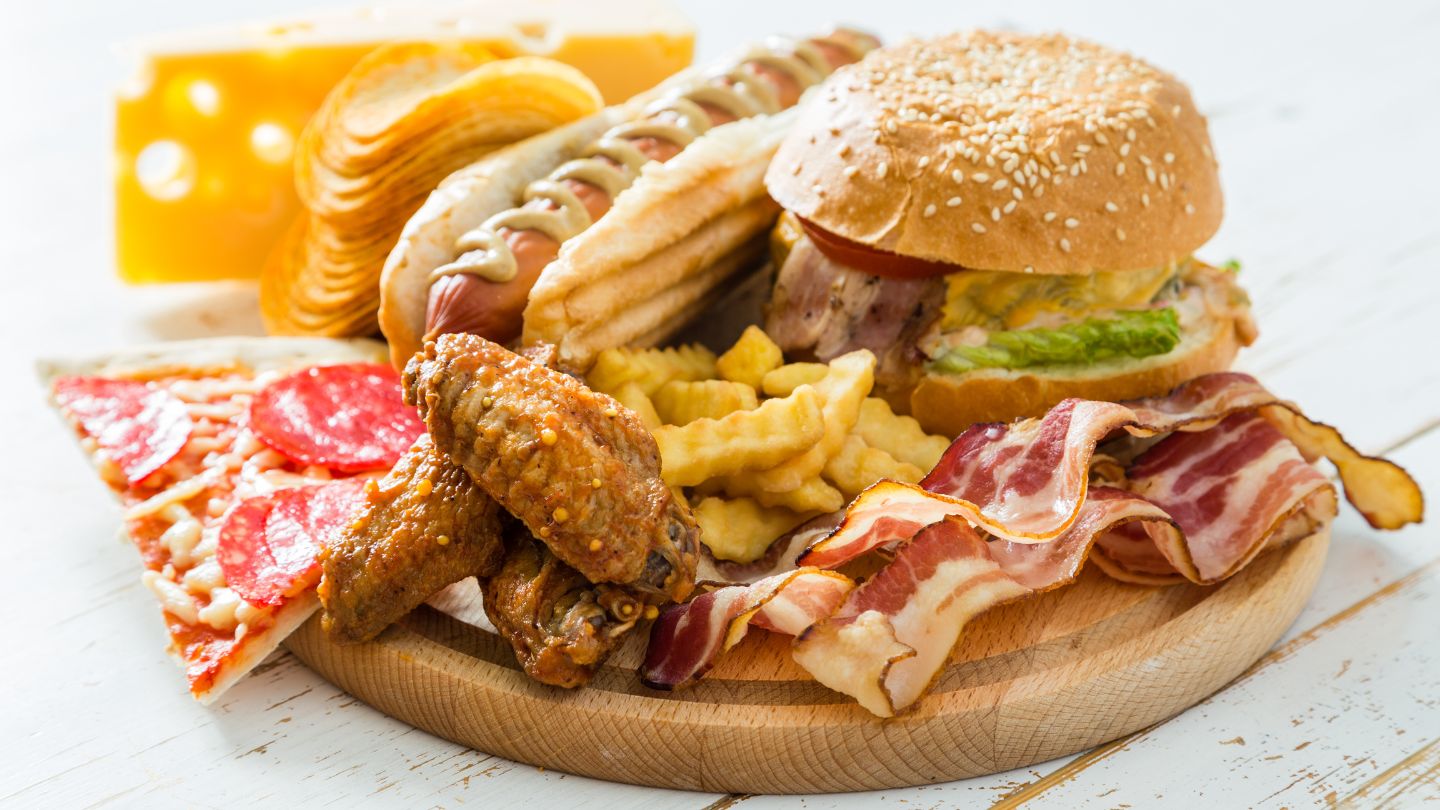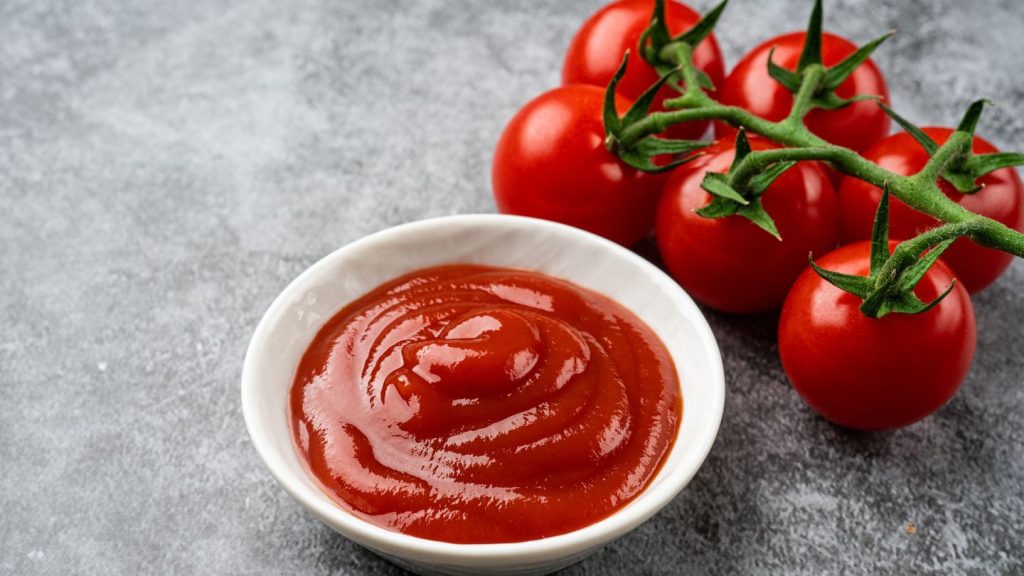
Top Foods to Avoid with Acid Reflux and GERD for Better Digestive Health
Acid reflux and GERD can cause persistent discomfort, making daily life challenging. Managing these conditions often starts with making smarter food choices. Certain foods can trigger or worsen symptoms, while others can help keep them in check. Understanding which foods to avoid is essential for reducing discomfort and preventing flare-ups. In this blog, we’ll explore the key dietary changes that can help you take control of your symptoms. By making informed choices, you can improve your quality of life and find relief from acid reflux and GERD.
Key Takeaways
- Identifying and avoiding high-fat foods, citrus fruits, spicy foods, carbonated beverages, chocolate, and caffeine can help manage GERD symptoms.
- Incorporating smaller, more frequent meals and a Mediterranean diet with lean proteins and vegetables contributes to better digestive health.
- Consult a healthcare professional if dietary changes do not alleviate symptoms, especially if experiencing severe or persistent issues.
Understanding Acid Reflux and GERD
Gastroesophageal reflux disease (GERD) is a persistent health issue that involves the frequent upward flow of stomach contents into the esophagus, often due to a malfunctioning lower esophageal sphincter (LES). This condition is commonly recognized as acid reflux and primarily stems from an ineffective LES – the muscle responsible for containing stomach acids.
Experiencing a burning discomfort in your chest or throat typically signals heartburn, which is one of the prevalent indicators of acid reflux. Reflux symptoms can also manifest as regurgitation when food or sour liquid reverses course back to your mouth, or it might result in a persistent cough. These signs associated with gastroesophageal reflux are not only distressing but may cause significant concern.
To effectively manage GERD and its accompanying discomforts, such as acid reflux, understanding how they occur is crucial. Acidic content spills out into the esophagus when there’s inadequate closure of LES—resulting in irritation and swelling. The impact of diet on these conditions cannot be overstated. Specific foods may aggravate symptoms by relaxing LES. Or increasing acid production within our stomachs. Distinguishing these trigger foods and steering clear of them plays an integral role in controlling this digestive ailment successfully.
High-Fat Foods to Avoid

Foods with a high-fat content rank among the top triggers for acid reflux symptoms. They have the effect of relaxing the lower esophageal sphincter (LES), which allows stomach acid to migrate into the esophagus. Such foods are known to slow down gastric emptying—the process by which your stomach empties its contents—thus increasing the chances of experiencing reflux.
Particularly challenging for individuals suffering from GERD are fried and processed items due to their excessive fat levels. While indulgence in treats like crispy fries or crunchy fried chicken may be tempting, these can significantly worsen symptoms. Likewise, full-fat dairy options, including cheese and whole milk, can aggravate conditions. Fatty meats such as bacon and sausage put additional strain on one’s digestive system.
To alleviate symptoms effectively, it is advisable to reduce total fat consumption in your diet. Opt instead for lean protein sources like poultry or turkey breast while incorporating an array of plant-based proteins into meal plans. Embracing high-fiber foods—including vegetables, whole grains, and legumes—is also beneficial in controlling acid reflux manifestations by supporting smoother digestion processes and preventing symptom flare-ups.
Citrus Fruits and Juices
Another set of foods known to aggravate acid reflux include citrus fruits and their juices. The high acidity found in oranges, grapefruits, lemons, and the respective juices can cause a relaxation effect on the lower esophageal sphincter. This relaxation enables stomach acid to make its way back up into the esophagus more easily, intensifying acid production and exacerbating reflux symptoms.
For those suffering from GERD, it’s advisable to reduce the consumption of citrus fruits and their juices as part of symptom management strategies. Instead, choosing non-citrus options such as bananas, apples, and melons might be beneficial since these are less likely to trigger irritation. These fruit alternatives allow for enjoyment without resulting in discomfort associated with acid reflux.
Spicy Foods
Many individuals with GERD experience acid reflux and its symptoms upon consuming spicy meals. This is due to the presence of capsaicin in such foods, which can provoke irritation in the esophagus lining, resulting in a burning sensation and discomfort.
To manage these symptoms effectively, it’s recommended that those suffering from GERD either limit or completely avoid spicy dishes. This does not mean food must be tasteless. Incorporating herbs and gentle spices into meals can provide flavor without exacerbating GERD symptoms, thereby helping mitigate both their severity and occurrence.
Carbonated Beverages
Fizzy drinks such as soda and sparkling water often exacerbate acid reflux because the bubbles within them can raise stomach pressure. This surge in pressure forces stomach acid up into the throat, causing unease for those with GERD.
To better control symptoms of acid reflux, steering clear of carbonated beverages is advisable. Instead, choosing flat water, herbal teas, or juices from non-citrus fruits provides more suitable drink options that are less likely to provoke reflux symptoms.
Chocolate
Chocolate is often a beloved indulgence, yet for individuals suffering from GERD, it can be problematic. The presence of methylxanthine in chocolate might cause the lower esophageal sphincter to relax, thereby permitting stomach acid to re-enter the esophagus more freely. Such relaxation may result in an escalation of reflux symptoms.
Consequently, since chocolate has the capability to provoke these discomforts, it’s deemed inappropriate for those managing GERD. Those with a penchant for sweets might want to explore other options, such as fruit or yogurt, that can fulfill their desires without leading to acid reflux-related unease.
Caffeine and Alcohol
Coffee, tea, and numerous sodas contain caffeine, which has the potential to weaken the lower esophageal sphincter. This can heighten the risk of experiencing acid reflux. Similarly, alcohol—especially beer and wine—does not just cause relaxation of the LES. It also boosts gastric acid production, thereby increasing the chances of reflux.
For those looking to control their GERD symptoms successfully, it is advisable to minimize or steer clear of beverages containing caffeine as well as alcoholic drinks. Instead, consider choosing herbal teas without caffeine or simply drinking water.
Onions and Garlic
Many dishes are flavored with onions and garlic, yet these ingredients may trigger heartburn symptoms among individuals suffering from GERD. They have the propensity to loosen the lower esophageal sphincter, which increases the risk of experiencing acid reflux. The occurrence of more intense heartburn is particularly noticeable when consuming raw onions and garlic as opposed to their cooked counterparts.
To mitigate heartburn while retaining a semblance of flavor in your cooking, consider substituting milder options, such as chives, for onions and garlic. This can offer a culinary adjustment that aids in controlling your symptoms more successfully.
Read More: Improving Heart Health: Addressing Heart Disease And Obesity
Tomato-Based Products

Consuming tomatoes and related items, including sauces and ketchup, which contain high levels of acid, might intensify the symptoms associated with GERD. This is due to their acidic nature having the potential to weaken the lower esophageal sphincter, thereby permitting stomach acid to seep into the esophagus. Consequently, this can elevate reflux symptoms and cause Unease.
To mitigate GERD-related discomforts, specialists suggest curtailing the consumption of tomato-based products. As an alternative strategy for those dealing with such symptoms, consider adopting less acidic substitutes or simply decreasing the quantity of tomato-containing ingredients in your dishes.
Mint and Peppermint
Mint, especially peppermint, can relax the lower esophageal sphincter, potentially worsening acid reflux symptoms. Consuming mint-flavored products may lead to increased occurrences of heartburn and indigestion.
To manage GERD symptoms, avoid mint-flavored products. Opt for other herbs and spices that do not relax the LES.
Best Practices for Managing GERD Through Diet

Managing GERD through diet involves more than avoiding trigger foods. Eating smaller, more frequent meals can help manage symptoms. Incorporate vegetables like beans and leafy greens into your diet to promote digestive health.
A food diary can help identify personal trigger foods and aid in avoiding them. Avoiding tight-fitting clothing reduces pressure on the abdomen, alleviating symptoms. Adopting a predominantly Mediterranean diet, rich in vegetables, fruits, and lean proteins, can also be beneficial.
When to Consult a Doctor
If you’re dealing with GERD symptoms, making alterations to your diet can offer considerable relief. If these adjustments and non-prescription medicines don’t alleviate heartburn, it’s crucial to seek medical guidance. If frequent heartburn is accompanied by troubling signs such as trouble swallowing, ongoing nausea or vomiting, or unexplained weight loss, professional healthcare advice should be sought.
Ignoring GERD without treatment might result in severe health issues like esophagitis and Barrett’s esophagus. Habitual excessive alcohol consumption could exacerbate your symptoms and lead to damage to the lining of your esophagus. It’s important to consult a doctor for persistent or escalating GERD-related discomfort.
Taking Control of Your Digestive Health
Managing acid reflux and GERD starts with mindful dietary choices. By recognizing and avoiding trigger foods, you can significantly reduce symptoms and improve your quality of life. Small, consistent changes to your diet can make a big difference.
At Wellstar Comprehensive Bariatric Services, we specialize in providing effective GERD treatment in Marietta, Smryna, Cobb, Austell, LaGrange, and West, GA. Our weight loss surgeons in East Cobb will guide you through every step of the process, ensuring your safety, comfort, and long-term success. Take the first step toward relief and reclaim your comfort with our support by scheduling a consultation today.
Frequently Asked Questions
What are some common symptoms of acid reflux and GERD?
Common symptoms of acid reflux and GERD include heartburn, regurgitation, and a chronic cough. If you experience these symptoms regularly, it’s important to consult a healthcare professional for proper evaluation and management.
Why should I avoid high-fat foods if I have GERD?
It is essential to steer clear of high-fat foods when dealing with GERD because these can weaken the lower esophageal sphincter and decelerate the process of gastric emptying, thereby intensifying reflux symptoms.
Are there any fruits I can eat if I have GERD?
You can safely enjoy non-citrus fruits such as bananas, apples, and melons if you have GERD. These fruits are less likely to trigger symptoms.
How can I identify my personal trigger foods?
To identify your personal trigger foods, keep a food diary to track your meals and symptoms, which will help you spot any patterns. By analyzing this information, you can pinpoint the specific foods that cause issues for you.
When should I consult a doctor for my GERD symptoms?
You should consult a doctor for your GERD symptoms if lifestyle changes and over-the-counter medications are ineffective or if you encounter severe issues such as difficulty swallowing or unexplained weight loss.
